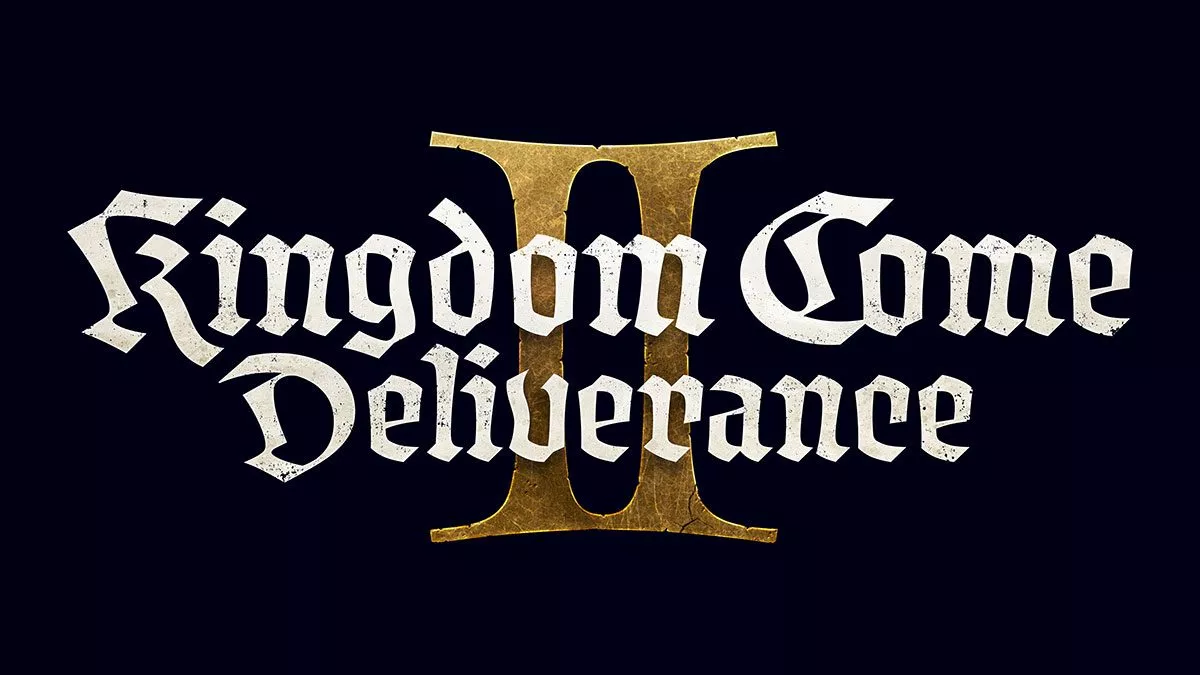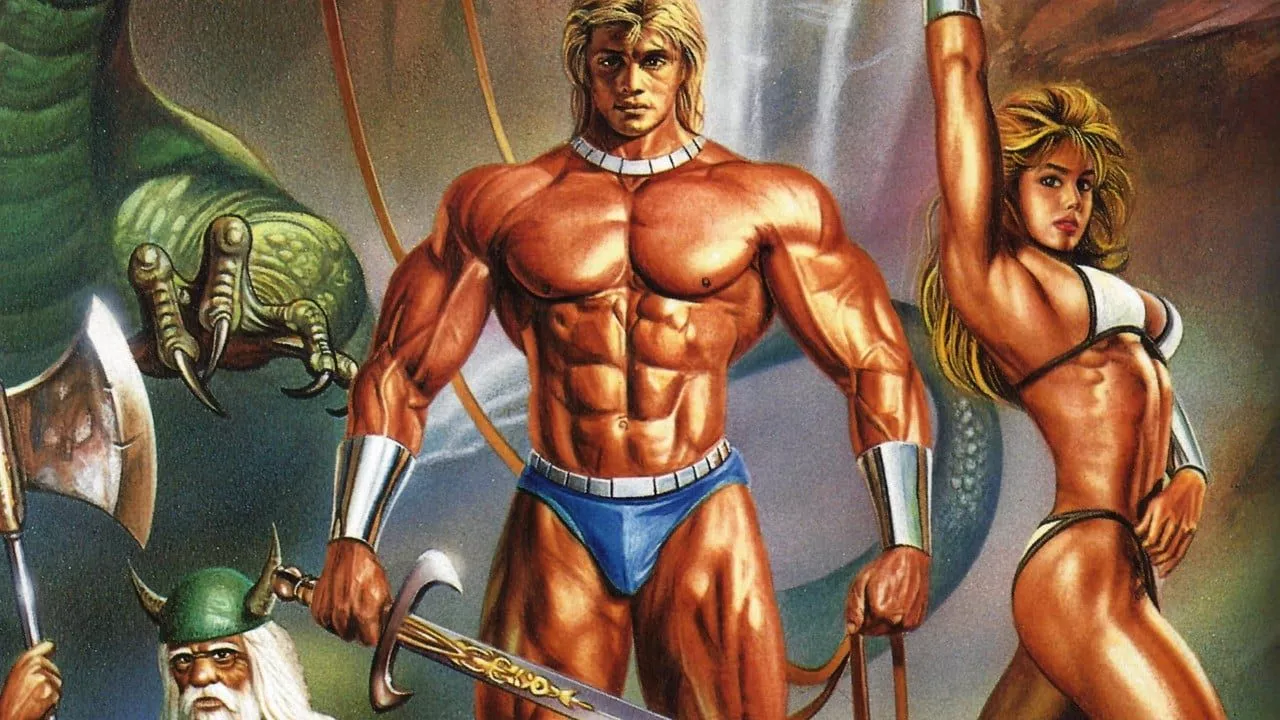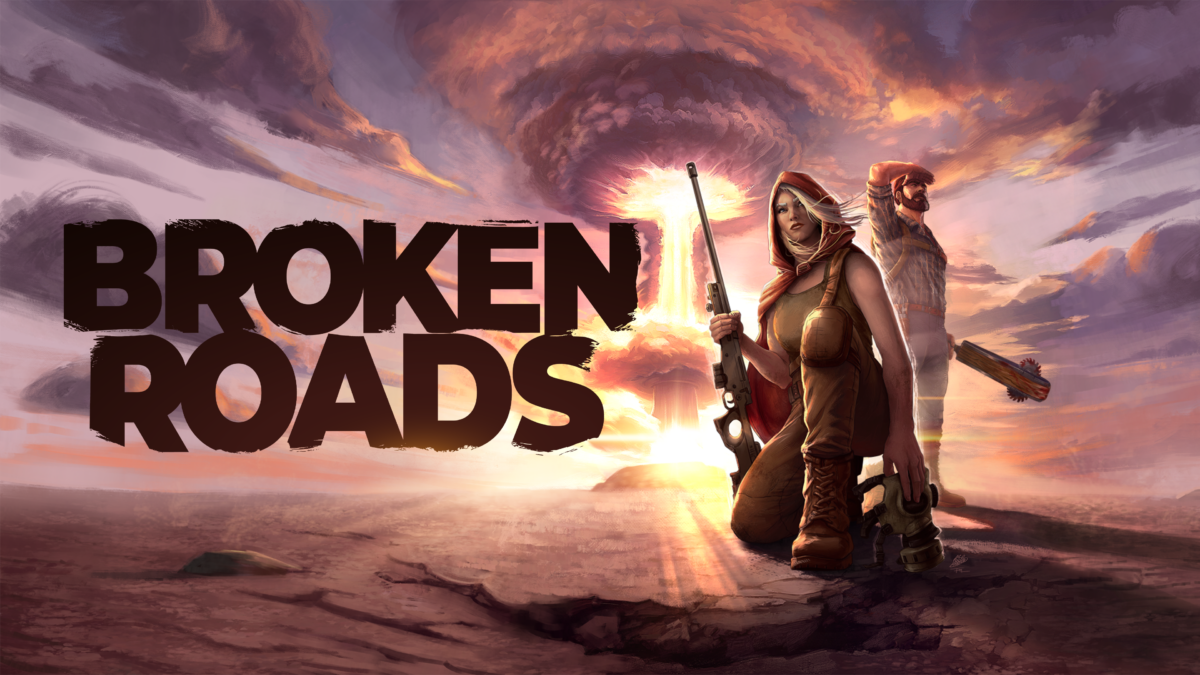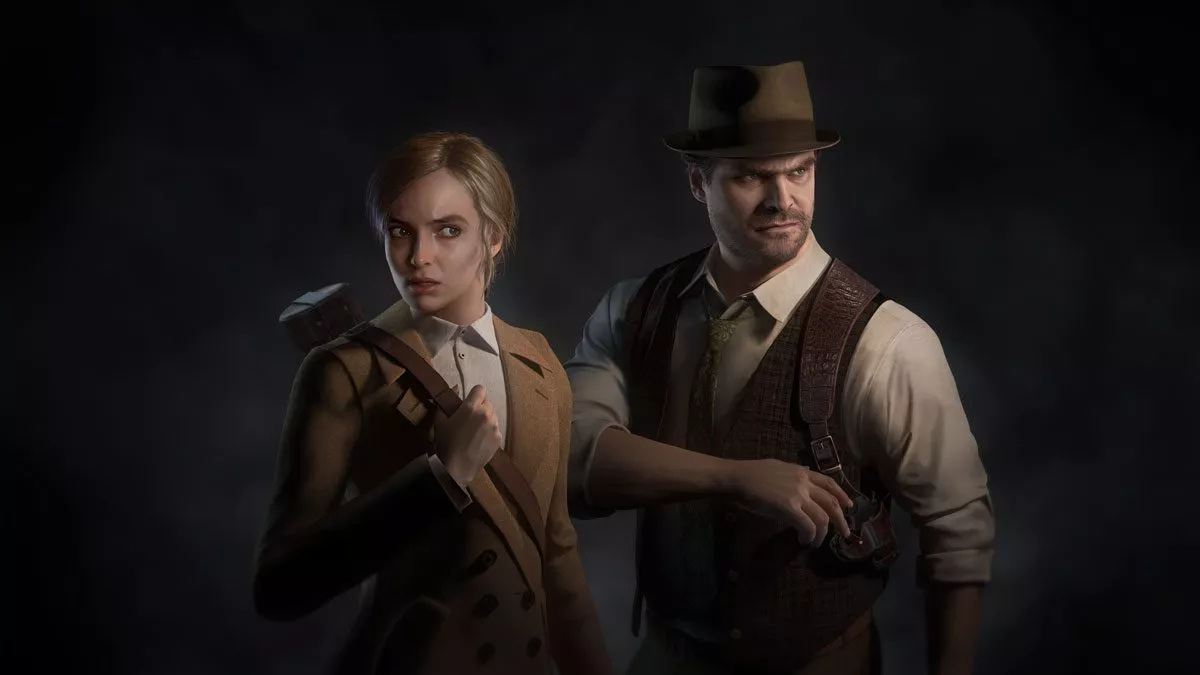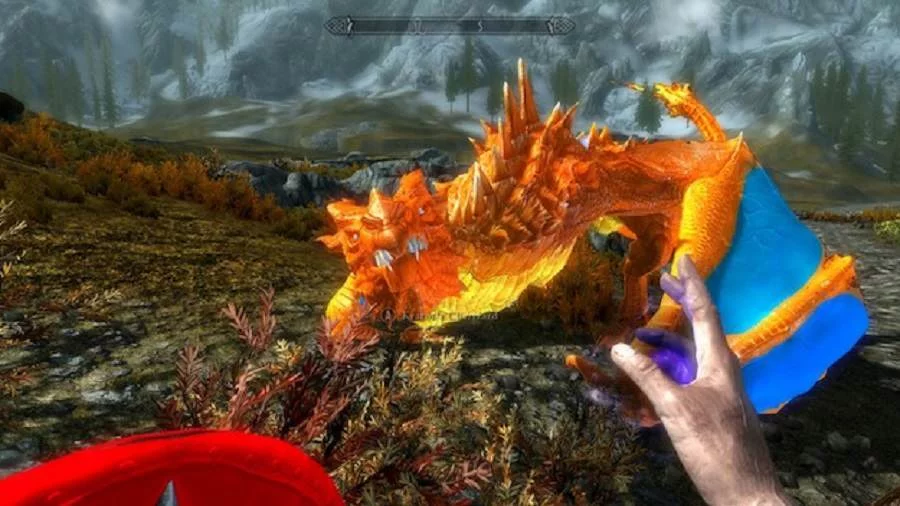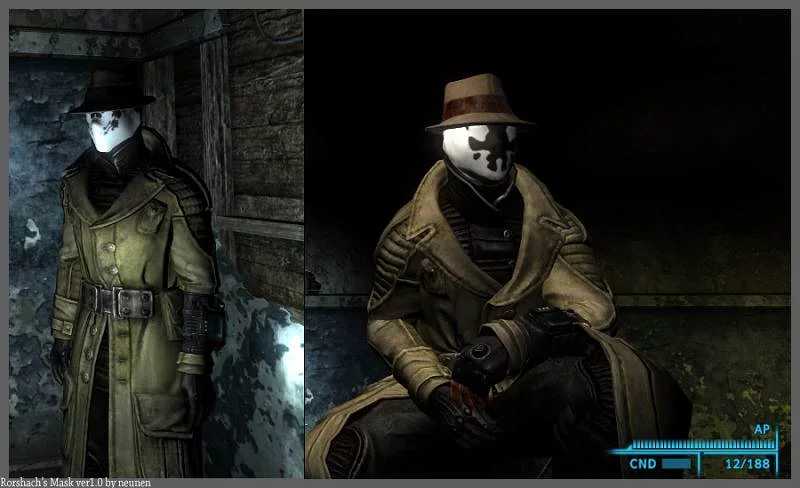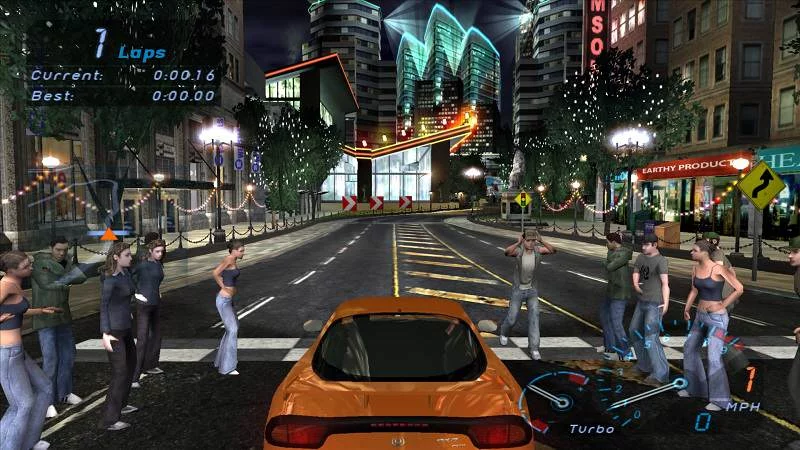Microsoft versus Sony, Battlefield versus Call of Duty and Forza versus Gran Turismo. These are some of the rivalries that can get people talking about console wars. “Game On or Game Over” is your place to get inside the minds of Nicholas and Andy as they seek to find the true meaning of gaming and tackle some of gaming’s most controversial subjects. Both are award winning authors – although the awards haven’t been mailed or created yet — but trust them. Would they lie to you?
Andy: We are in that odd time in the gaming world. That time right before the Spring releases start hitting and where not many developers are making much noise. Yes, we had the huge “announcement” that the next Call of Duty game will release in November, because every gamer didn’t know that already. I mean, no-one could have guessed it was coming out the first week in November because that hasn’t happened for the past what… five or six years (or more). Then there was Telltale Games announcing a future announcement for a project in 2017 with Marvel. Yes, we’ve come to announcements for announcements for projects a couple years away. I mean talk about making no news into more… no news.
There is something though that made a lot of noise last week that I would like to talk about, because I think it’s actually pretty important. Almost more important than Steve giving us a raise soon. That is, Valve’s decision to start allowing modders to charge for the mods they create – initially starting with Skyrim. As everyone expected, once that news broke it became a veritable avalanche of mostly hate. Gamers swore off buying games with Bethesda’s name on them. Gamers threw temper tantrums how this was the beginning of the end for PC gaming and a host of other negative things. There were, of course, a few who supported the idea and talked about the possible benefits of it long-term. Sifting through the gamer rage, a few of the detractors made legitimate arguments while some of the ones for it, made equally as solid counterpoints.
Of course, less than 24 hours later, and right after an open letter from Bethesda about why they are doing it, Valve did a complete 180 (no scope) and reversed course cancelling the paid mods idea. I’m not a big PC gamer and obviously that’s who this affects, but I have dabbled in PC gaming a little bit. To be honest, I’m not really sure where I fall in the spectrum of loving the idea or hating the idea. What I want to focus on is the idea, the response, and how quickly it was reversed.
We saw something similar, though of grander scale, almost two years ago with the Xbox One DRM always online, just deal with it fiasco. While Microsoft’s delivery of their vision wasn’t very good, I still think several of their ideas were good. Yet, in order to save face they had to back-pedal on everything. I know you’re not a PC gamer, but what’s your take on Valves sudden reversal? Is it a case of having good intentions, but poor delivery causing gamers to not understand the vision? Or does it boil down to just a bad idea all around and Valve not understanding what they were doing?
Nicholas: For a while now I’ve felt mods are a really cool way to add extra life and flavour to a game. When I saw videos of people using HD mods for GTA IV or NFS Underground it made me wish to have them both available on my Xbox 360. When I saw someone modding Skyrim to look like Pokemon it made me wish that Nintendo would make something similar. Alas, as a console gamer they’ve always just been high-hopes with no chance of becoming a reality.
With the fiasco (and quite a ridiculous one I might add) that surrounds this latest decision by Valve, I’m finding it difficult to really understand the rationale behind all the backlash. I understand that mods have always been free in the past, but it comes across as nothing short of gamer entitlement when these people start to complain that they might need to pay for additional content. Call me wrong here, but PC gaming has always had this “we pay for as little as possible” stigma and attitude around it. Putting aside the PS1 and PS2, piracy has always been a big thing for PC gamers. People don’t like buying movies, TV shows or music on their computers either. For me, this anger surrounding potentially paying for mods stems from this same mentality.
To answer your question, I think Valve’s decision to backtrack is disappointing. I understand that consumers should have a voice, but it seems ridiculous that just because a few people become vocal against a change that companies need to remain stagnant and the same. You mentioned above that you’ve seen acceptable arguments for both sides of the debate, but to begin what are those reasons for not paying for mods that you felt were compelling? Right now I can’t really see how gamers have a leg to stand on.
Andy: I can’t say I have a deep understanding of the PC modding community and all the intricacies that go along with making and distributing a mod. What I have been able to gather though, is that many mods borrow things from other mods. I’m not talking about mere ideas, I’m talking tangible assets and direct coding. So, one of arguments against selling mods that makes sense, to me anyway, is how do you sell a mod that in part was created by someone else? As it was, there was really no way for Valve to police who made which part of a mod the only person who was set to get credit/payment for the mod would have been the person that released it on Steam. If one of the goals of this idea was to give credit and reimbursement for those who put the time in and create these mods, you have to agree that it would be hard to fracture out the payment on who made what and what percentage to give to who.
The other big thing that didn’t really get talked about a lot is, there is a deeply inherent thing with mods that at times they can break the game. I’m not talking about giving god powers to the gamer, making them invincible, or what have you. I’m talking about making the game unplayable and crashing the computer. When you buy something, and pay money for it there is an inherent understanding that there will be some sort of support for it. In the video game world that means patches, updates, etc. In the case of a mod, once it’s released into the wild that could be it. There doesn’t have to be updates, tweaks, patches etc. It is what it is. Now, let’s say a mod is great, but for PC users with <insert one specific graphics card> it crashes their game. Those users could be sh*t out of luck. Now, using that same example – you download this mod (and pay for it) it crashes your game. Steam doesn’t have the best Customer Support, so what do you do? Email the person that made the mod, they’re busy and don’t get back to you. So, you post a message on the forums. Someone knows what the issue is and fixes it and releases that mod… who gets paid for it? The person that fixed it, or the person who made it?
What if that original mod that you bought took lighting elements from “Modder A”, texture elements from “Modder B”, and structure ideas for “Modder C”. The system as it was, only “Modder D” who put everything together and released it on Steam was the person who would get paid for the mod. When you look at it that way, it’s hard to argue that those who spoke up against the idea were wrong. Sure, it’s easy to look at gamers complaining about something and automatically assume that they are entitled whiners who need to just be quiet and move on. Yet, from a critical view point, I get why they were upset and concerned. I’m curious though, you have as much experience as I do in the modding world, which is none, in your opinion what are the reasons Valve shouldn’t have backed down and how this idea was actually a good one and just maybe not explained as well as it could have been?
Nicholas: Knowing what you’ve just written above makes me assess the entire situation a little differently now I must admit. We need to question who should receive payment out of the modders, but also how much the publishers of the base game deserve too (note: I’ve used the word deserve deliberately in that sentence). It’s a difficult situation now that I think about it. On the one hand, yes, if someone puts effort in to create a mod, then that person is not out of line asking that if people are interested, that they can provide some remuneration for his/her time. That said, if that person is using someone else’s code then they should also be given a cut. I’m not sure how people use code at the moment, but I don’t know how easy it would be to track what comes from another source and what was written by the uploader of the final product. It definitely makes it tricky.
The reason they shouldn’t have backed down is grounded on what I’ve just said – someone put the effort in and they should be allowed to get something back if people are willing to give (on the condition that the publishers receive a cut). I think it’s an interesting decision and only fair from Valve. On the flip-side, if all this work is involved in splitting payment then I’m not sure how worthwhile it is – unless the mod is created from scratch in-full.
You mentioned the technical support side of things but for me that’s dismissible. A Mazda RX8 owner can’t purchase the car stock, replace the engine with a V8 and change the suspension and brakes and then go back to the dealer and say, “hey, it’s not working anymore, can you fix it?” Sure you can try, but they owe no obligation once you start tampering with their finished product. It’s much the same with mods – you choose to download and use them, you take on the risk. Just because some engines can’t work with some turbochargers doesn’t mean the manufacturer should stop making them. Similarly, just because some mods don’t work with all configurations doesn’t mean they shouldn’t be made for those that do.
As I’m typing this I’m wondering though – should modders even receive money in the first place? Mods in the past have always been for fun, but sharing them on a platform is so easy that now others can enjoy them too. For that reason, should they only be seen as side-projects or a hobby that don’t deserve payment, or as I mentioned before, are those who create this content allowed to receive money for their (potential) hard work?
OK, so with those points you’ve mentioned above it starts to make a little more sense. Of course, I’m not suggesting that the anger and outrage is acceptable, but I can start to understand why some people would oppose the proposition. In the case of payment, it certainly becomes a tricky situation. You mentioned that mods may take certain elements from other mods, but the one thing we’re missing is the fact that all these mods rely on the base game to work – and that property belongs to the developer/publisher. The question I’m wonder is not just who should receive payment out of the mod creators, but then what about the publisher? Should full payment go towards the publishers or at least the majority?
Andy: You misunderstand what I said about the support side. I’m not talking the actual “dealer” i.e. Steam/Valve supporting every mod, more so that the person who made the mod (or at least published it) does not have to support it at all. So, if it’s a complete and utter mess the modder doesn’t have to fix it. If you buy an aftermarket part for your car, there is still some implied warranty/support from the manufacturer of the part if the part fails right away. Whereas with mods, they are what they are. If they have the potential to completely break the game or crash the computer there needs to be some level of support, from someone, if it’s a paid product does there not?
Your last question moves us into an area that becomes pretty cloudy, pretty quickly. What exactly is a mod and should those who make them be compensated for them? If they are sold, I can certainly understand why the original developer feels they should get a cut of the proceeds. You touched on it though, the modding community has always been, at least from my very limited understanding of it, a hobby and mostly side projects made by people trying to make things better. Often times they do make things better. Whether it be increased graphics, new user-created missions and sometimes they are even able to stabilize a game that’s buggy. For those who make mods, I don’t think they have ever created one and been thinking, “Yeah, I’m going to make so much money off of this” while they were making it. I think, again no experience with it, they were probably thinking “I hope people like this” and left it at that. Making money was never really part of it. Now, I do know of a couple stories where people made fantastic, in-depth mods that got the attention of the developer and landed them a job at that company. That seems like a more likely outcome to me.
I don’t think anyone is saying that mods are bad. More often than not they add to the experience of the game in a number of ways. I have seen some pretty cool mods but am disappointed because neither Xbox nor PlayStation will ever see them. Heck, there is a Minecraft mod that lets you catch and train Pokémon. How cool is that? Once you start charging for those things though, then it becomes something different. It’s no longer about making it ‘just because’. It’s about making them to make money and that takes away some of the charm for me. Yes, those who make some of the more advanced mods put a lot of time and effort into them, and I don’t want to take away from that by any means. They are amazing, but the way Valve just came out and smacked people in the face with it reeks of a poorly thought out plan to make as much money as they could from it. So, we both agree that those who make mods shouldn’t be taken for granted, do you think a better option would be to give people the option to “pay what you want” donation type thing? Maybe even set it up in a way so that Valve and the developer can still get a small cut from it. Maybe like a Humble Bundle type payment plan. The person giving the money decides who gets what? Do you think that’s a more reasonable option?
Nicholas: The ‘pay what you wish’ option is certain the best model for this in my opinion. This way, the consumer has the complete power to dictate what the mod is worth and there’s no effort involved by Valve by having to police what each mod should be ‘sold’ at. I think this also prevents mods from being over-priced too (if the creator had any sort of input). They could base the calculations that go to the publisher and Valve on set percentages and that way everyone wins. At the least, if people decide to pay nothing then the creator is no worse off than if this option was never implemented. I think it will also continue to entice gamers to use them because there is no obligation to lay out cash.
If we go back to the support issue from above, I think the option to pay what you wish also takes the onus away from the creator to provide any sort of assistance should it not work. As long as they aren’t asking for payment, and as long as the user willingly provided that donation, then the end user continues to assume the risk of downloading and installing it. Mods that break games should be reported and removed by Valve regardless. I think there’s also got to be some realism from gamers that these mods aren’t officially backed by companies so you can’t expect them to be flawless (hell, especially when the games themselves aren’t guaranteed to be free of issues).
We’ve both mentioned above examples of cool mods we’ve seen online, and we’ve both mentioned how much we’d like to see them come to Xbox or PlayStation. For a moment, I’d like to ask you what your ideal mod would be for a game, and how much would you be willing to spend on it? For myself, if I could have a properly created HD mod for Need For Speed Underground that could run on my Xbox One, I’d happily pay $10AUD for it. How about you?
Andy: Man, I’d love for there to be mod support on Xbox One, if for no better reason than I love the creativity of some of the people that make them. I still remember the first mod that made me jealous of PC gamers, there was one for (shocker I know) Fallout that added something like 20 hours of gameplay, complete new quest line, weapons, perks etc. I watched a video of it and got excited that a new Fallout expansion was coming, then I realized it was a mod for PC and was gutted. It was amazing. There is also the Watch_Dogs mod for GTA V which looks amazing. If I had to pick one game on Xbox One that I’d love to see a mod for hmm, can I say someone mod a story into Destiny? Ok, no, um, man that’s a tough question if only because of the creativity people have. I’m really not sure what game I would pick and then have a mod for to be honest. I’m just sitting here looking at my game collection and there are so many things you could do that would be cool. A Dead Space mod for Halo, a Titanfall mod for Call of Duty Adva… oh wait that’s pretty much the same already. It really boils down to imagination and know-how. Certainly some cool and creative options though.
I was talking to a friend about the payment idea versus a set price and he had an interesting theory that I’ll share. He brought up things where they have tested pricing, a set price versus a pay what you want type pricing. Turns out, more often than not, that with the pay what you want option, for those who actually pay, they end up paying more than what the set price would have been. Sure, there are those who will take it for free and run, but by and large if it’s good enough people will support it accordingly. I think that’s one thing gamers are very good at doing and that’s supporting things that they like and appreciate. Kind of the ‘if you build it they will come’ type mentality.
As we wrap up this week’s discussion though, I do hope that those who make mods for games keep making them. Even though I myself will probably never play one, I know several people who do. That, and you never know when a mod will inspire a developer to either implement something like it, or spark some other idea for a whole new game. We are past the part where mods are bad and evil. I wish there was some way Microsoft and Sony could implement them, but in reality that will probably never happen. I think Valve reached too quick on this one and, like Microsoft, didn’t really explain the reason behind anything and just assumed gamers would roll with it. When the very vocal pushback happened, they were left with little choice than to backpedal as fast as they could. If I actually used mods on PC I’d want to give some credit, and payment, to those who make the truly special ones. I think there is some middle ground to be found, it should be an either or scenario. I think we’ve hit some of the big points on this one, but do you have an closing thoughts on this topic? Is it really a black and white issue, or is it one that is incredibly grey that needs some finessing and figuring out yet?
Nicholas: Like all things, the choice should be given to the gamers. If they want to have the option of giving money to a mod creator for something they’ve downloaded, used and like, then so be it. Alternatively, if they don’t want to then that’s perfectly OK as well. I can see how this can be viewed as another money-grabbing tactic by Valve and the publishers but I think it has a lot less malice than some of the other avenues companies have used to seek out extra money from gamers. In the end of the day, if people are willing to give money to Counterstrike streamers (and believe me, some of the top players earn a killing) then what’s the harm in gamers giving money to other content creators? In the case of the Fallout mod you mentioned, providing gamers with another 20 hours of gameplay is no small feat, so it shouldn’t be seen as outlandish that the person(s) behind it might see a little bit of cash out of it as a result.
Gamers really need to chill out though. It never seemed like this entire debacle was ever discussed maturely by the community, and just turned out to be a yelling-fest by those who opposed it. I’m still just not sure if we need to give these companies a chance to prove their vision before we jump down their throats demanding they scrap it.
Tune in next time for the next instalment of Game On or Game Over. If you have any ideas for our next article, feel free to contact Andy or Nicholas on Twitter.
This article may contain affiliate links, meaning we could earn a small commission if you click-through and make a purchase. Stevivor is an independent outlet and our journalism is in no way influenced by any advertiser or commercial initiative.




